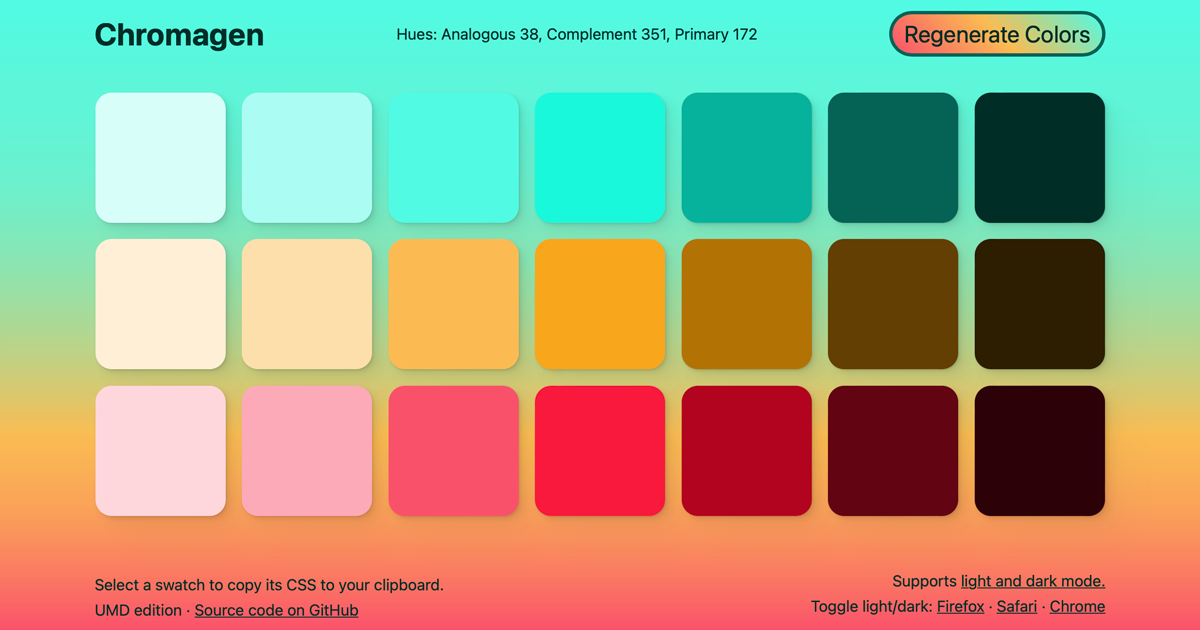Color scheme generator
Chromagen uses Microbundle to produce ESM (ECMAScript modules), CJS (CommonJS), and UMD (Universal Module Definition) bundles that work in various environments.
npm i @famebot/chromagenimport chromagen from "@famebot/chromagen";
const colorScheme = chromagen();
console.log(colorScheme);CommonJS require syntax:
const chromagen = require("@famebot/chromagen");
const colorScheme = chromagen();
console.log(colorScheme);For browsers, use unpkg or include dist/chromagen.umd.js,
which examples/browser/index.html demonstrates. View the latest version at
https://chromagen.io
Latest UMD bundle on unpkg:
https://unpkg.com/@famebot/chromagen/dist/chromagen.umd.js
Using the UMD bundle in the browser:
<script
src="https://unpkg.com/@famebot/chromagen/dist/chromagen.umd.js"
></script>
<script>
const colorScheme = chromagen();
console.log(colorScheme);
</script>Chromagen returns an 11 property HSL color scheme object with values randomized within acceptable parameters. Included are 7 shades of lightness, 1 saturation level, and 3 hues: the primary hue, its complement, and a hue analogous to the complement. The generated object for the example scheme in the image above was:
{
hue: 172,
complement: 351,
analogous: 38,
saturation: '94%',
xlight: '92%',
lighter: '83%',
lightness: '65%',
midrange: '54%',
lowmid: '36%',
darkness: '20%',
darker: '9%'
}Since v1, Chromagen returns the percent symbol with all mixing values except hues.
Check src/index.js for the nitty gritty. We summarize
breaking changes in the changelog and the
release history on GitHub.
MIT


